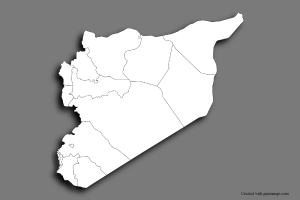Syria's higher education system has faced significant challenges in recent years, as the country has been embroiled in a civil war that has lasted for over a decade. The conflict has resulted in a significant loss of life, displacement, and destruction of infrastructure, including universities and other higher education institutions. Despite these challenges, there have been efforts to reform the higher education system in Syria and provide education to the population.
Challenges to Higher Education in Syria
The Syrian conflict has had a significant impact on the country's higher education system, which has historically been one of the strongest in the region. According to the UNESCO Institute for Statistics, the number of Syrian students enrolled in higher education has dropped significantly, from 307,442 in 2010 to 41,070 in 2018. This decline is largely due to the closure of universities and the displacement of students, who have been forced to flee their homes and seek refuge in other countries.
The destruction of university infrastructure has also been a significant challenge. Many universities have been damaged or destroyed by the conflict, including the University of Aleppo, which was once the largest university in Syria. The destruction of libraries, laboratories, and other facilities has severely impacted the ability of universities to provide quality education and conduct research.
Another challenge facing higher education in Syria is the shortage of qualified faculty. Many professors and researchers have fled the country, and those who remain face difficult working conditions, including a lack of resources and support.
Efforts to Reform Higher Education in Syria
Despite these challenges, there have been efforts to reform the higher education system in Syria and provide education to the population. The government has invested in rebuilding damaged universities and providing resources to support teaching and research. However, the pace of reconstruction has been slow, and many universities are still unable to function at full capacity.
International organizations and NGOs have also been working to support higher education in Syria. The European Union, for example, has launched the "Support to Higher Education in Syria" program, which provides scholarships and funding for academic programs. Other organizations, such as the Syrian American Medical Society, have provided medical and educational support to Syrian students and faculty.
One innovative approach to addressing the challenges facing higher education in Syria is online learning. The Syrian Virtual University, which was established in 2002, has provided distance education to thousands of students in Syria and other countries. The university offers a range of undergraduate and graduate programs, including business administration, computer science, and education.
Conclusion
The challenges facing Syria's higher education system are significant, and the ongoing conflict continues to impact the ability of universities to provide quality education and conduct research. However, there have been efforts to reform the system and provide education to the population, including the use of online learning and international support. It is essential that these efforts continue to ensure that the next generation of Syrians has access to education and the opportunity to rebuild their country.

